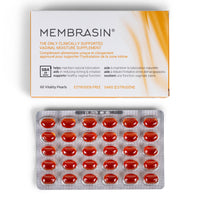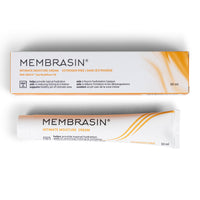Healthy Hair 101: During and After Menopause
When women say that menopause changed their lives, they are not kidding. Menopause can affect surprising aspects of your life from your heart health to your sex life, and yes, even your hair. So, we’ve compiled some tips on maintaining healthy hair both during and after menopause.
What Happens to Your Hair During Menopause
Menopause is the part of life where estrogen production slows dramatically—and the ratio of androgen to estrogen increases. One of estrogen’s primary functions is to promote hair growth and strength. Androgen, on the other hand, decreases the size of hair follicles on your head and increases hair growth in other places. The combined effect of the change in these two hormones is that many women feel that menopause has decreased their overall amount of hair and the hair that remains is less manageable than before. When women’s estrogen levels drop, hair grows slower and can become more brittle and prone to breakage.

Hair loss, too, is a pervasive side effect of menopause. As many as 66% of post-menopausal women experience some hair thinning. It may even seem like the hair on your head has migrated to other, less attractive places on your body to have hair, like your upper lip or chin. If you are experiencing an extreme amount of hair loss, you could have female pattern hair loss, which is common but treatable with widely available prescriptions. The good news is that hair loss is a normal part of aging, and it usually isn’t indicative of a significant medical problem.
How to Combat the Effects of Hair Loss During Menopause
A vast array of options exist for counteracting the effects of menopause on your hair, from the simple (opting for a new haircut, for example) to the significant (getting a hair transplant). The best option for you depends on how much the hair loss is affecting your self-esteem and the changes you can make based on your lifestyle.
To optimize your hair’s health, you should focus on elevating your body’s overall health first. Habits that increase your overall health—reducing stress, maintaining an exercise regimen, staying hydrated, and eating nutritious food—can all help mitigate the impact of menopause on your body, including your hair.
Next, take great care of your hair. Ensuring it stays moisturized can help prevent breakage. Though it won’t create more growth, it can slow the appearance of loss. Also, consider scaling back on the number of treatments, like dyeing, perms, and high-heat treatments you subject your hair to. Reducing damage to your hair can help it stay healthy throughout menopause.
Be sure to check with your doctor if any of the medications you’re currently taking could be causing you to lose hair. If a prescription is the cause, you may be able to switch to a different treatment, or the hair loss may stop when the medication is discontinued. Your doctor may prescribe hair growth treatment, like Rogaine, depending on your medical history.
However you decide to handle the effects of menopause on your hair, taking a whole-body health approach to menopause will undoubtedly help ease the process.



